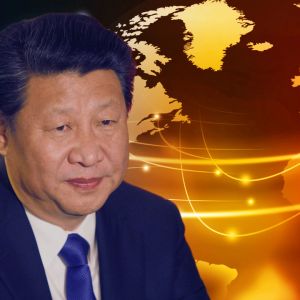Xi Jinping pitches China as EU’s true partner while Trump picks fights on all fronts
3 min read
President Xi Jinping is trying to convince Europe that China is its real ally, while Donald Trump is going after the European Union with tariffs, threats over defense, and zero patience for negotiations. China needs new friends. The trade war with the US has boxed it in, so Xi is now pushing hard to fix relations with Brussels, using diplomatic gestures and economic bait to win support. To start, Jinping is expected to lift the symbolic sanctions placed on several EU lawmakers. One European official said the move is part of a wider effort to cool tensions. These sanctions didn’t do much damage, but getting rid of them signals a shift in tone. In a statement, the Chinese Foreign Ministry said, “As the world’s major economies, China and Europe will jointly safeguard the multilateral trading system.” It also invited more European parliamentarians to visit China, though they stayed silent on the status of the actual sanctions. Trump slams tariffs while China courts Europe Meanwhile, Trump is stomping on the transatlantic alliance. He slapped a 20% tariff on European goods, later trimming it to 10% for a 90-day window, but the damage is done. He also demanded the EU pay more for its own military and accused Europe of cozying up to President Vlad Putin. So far, leaders in Brussels haven’t been able to make headway. They even proposed ditching all tariffs on industrial goods, but Trump didn’t bite. Beijing sees an opening. Chinese exporters, squeezed out of the US, are now turning toward Europe. At the Shanghai auto show, Chinese firms revealed plans to expand operations inside Europe. Officials on both sides urged cooperation, with some calling for a more “pragmatic” way to settle disputes. EU policymakers are reportedly weighing minimum price quotas on Chinese electric vehicles instead of the harsh 45.3% tariffs they imposed last year. That would cool off a trade fight that had escalated when China hit back with taxes on French cognac. That retaliation has been stalled for another three months, giving French producers a break. EU leaders, who once acted as middlemen between the world’s biggest economies, changed after the COVID pandemic, blaming China for diplomatic messes and cheap exports that hurt European jobs. That led them to team up with Washington on an economic plan to reduce dependence on China. EU plans Beijing summit while investment pact resurfaces But with Trump wrecking the transatlantic trust, Europe is trying to fix things with Beijing. Officials will now head to China in July for a summit that was supposed to take place in Brussels. But Xi wouldn’t come, so they ditched protocol and decided to go to Beijing instead. This meeting could bring an old project back from the dead: the investment pact between China and the EU. Negotiated for seven years, it collapsed in 2021 after China imposed sanctions on ten individuals and four entities in response to Western sanctions over human rights violations in Xinjiang. Cecilia Malmström, a former EU trade commissioner, said: “If the sanctions were to be lifted by Beijing, I think there would be a willingness to try to ratify the agreement and thereby partly increase trade with China.” The pact was designed to open more of the Chinese market to European companies and protect Beijing from rising hostility toward its investments in Europe. But now things are messier. Wang Yiwei, a professor at Renmin University, said it would be “difficult” to revive the deal. Still, he thinks China could apply parts of it on its own, like cooperation in e-commerce, electric cars, and data sharing. Earlier this month, European Commission President Ursula von der Leyen spoke with Chinese Premier Li Qiang and pushed for urgent talks on economy, trade, green energy, and tech collaboration. China’s Commerce Ministry said Beijing is ready to “deepen practical cooperation” with Europe to protect global supply chains. But there’s a catch. Trump’s tariffs may push Chinese products originally meant for America straight into Europe. Stephen Jen and Joana Freire from Eurizon wrote that about one-third of redirected goods could flood the EU, jacking up China’s trade surplus with Europe by 70%, which would mean a $420 billion jump. Cryptopolitan Academy: Tired of market swings? Learn how DeFi can help you build steady passive income. Register Now

Source: Cryptopolitan



